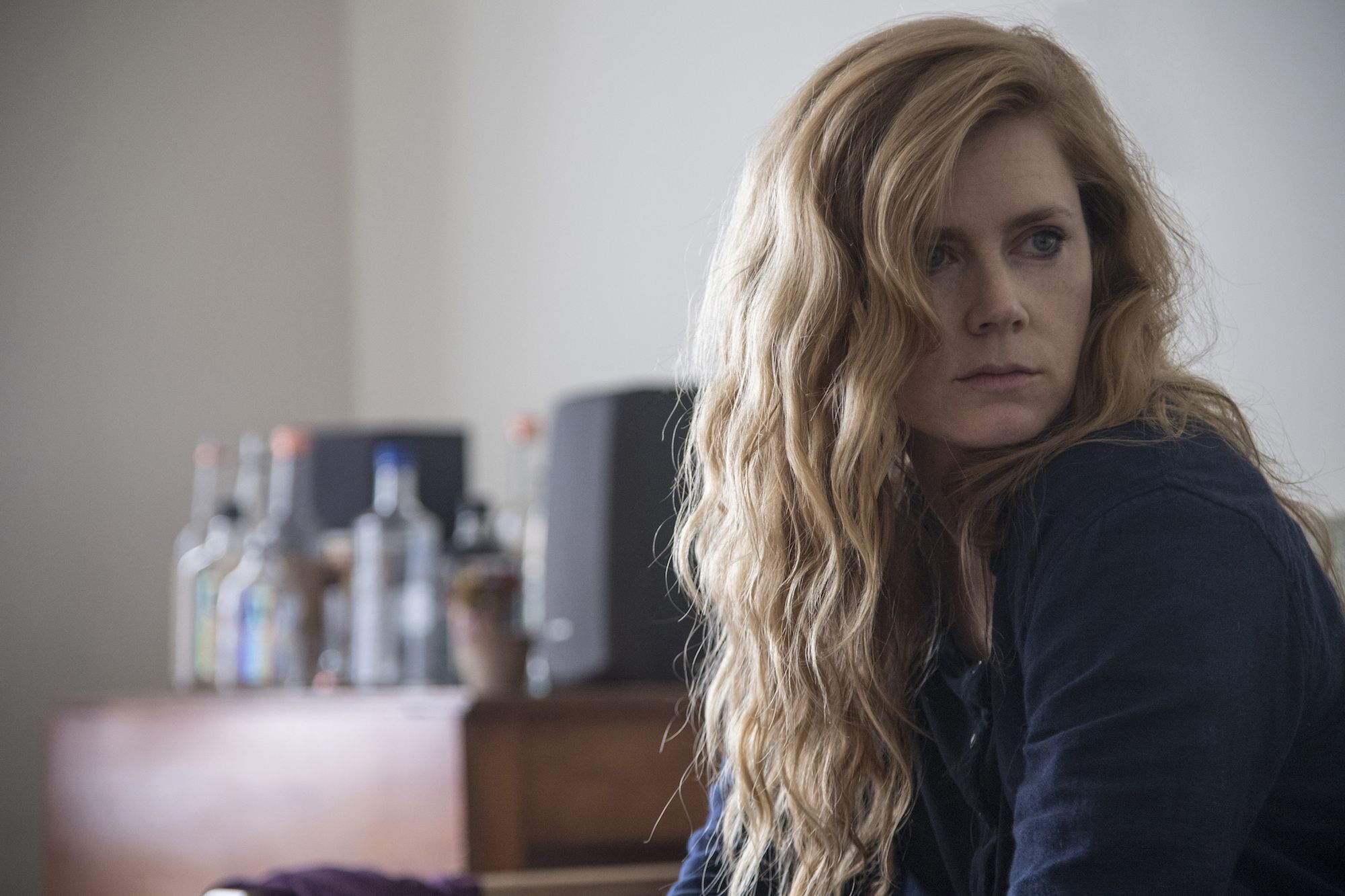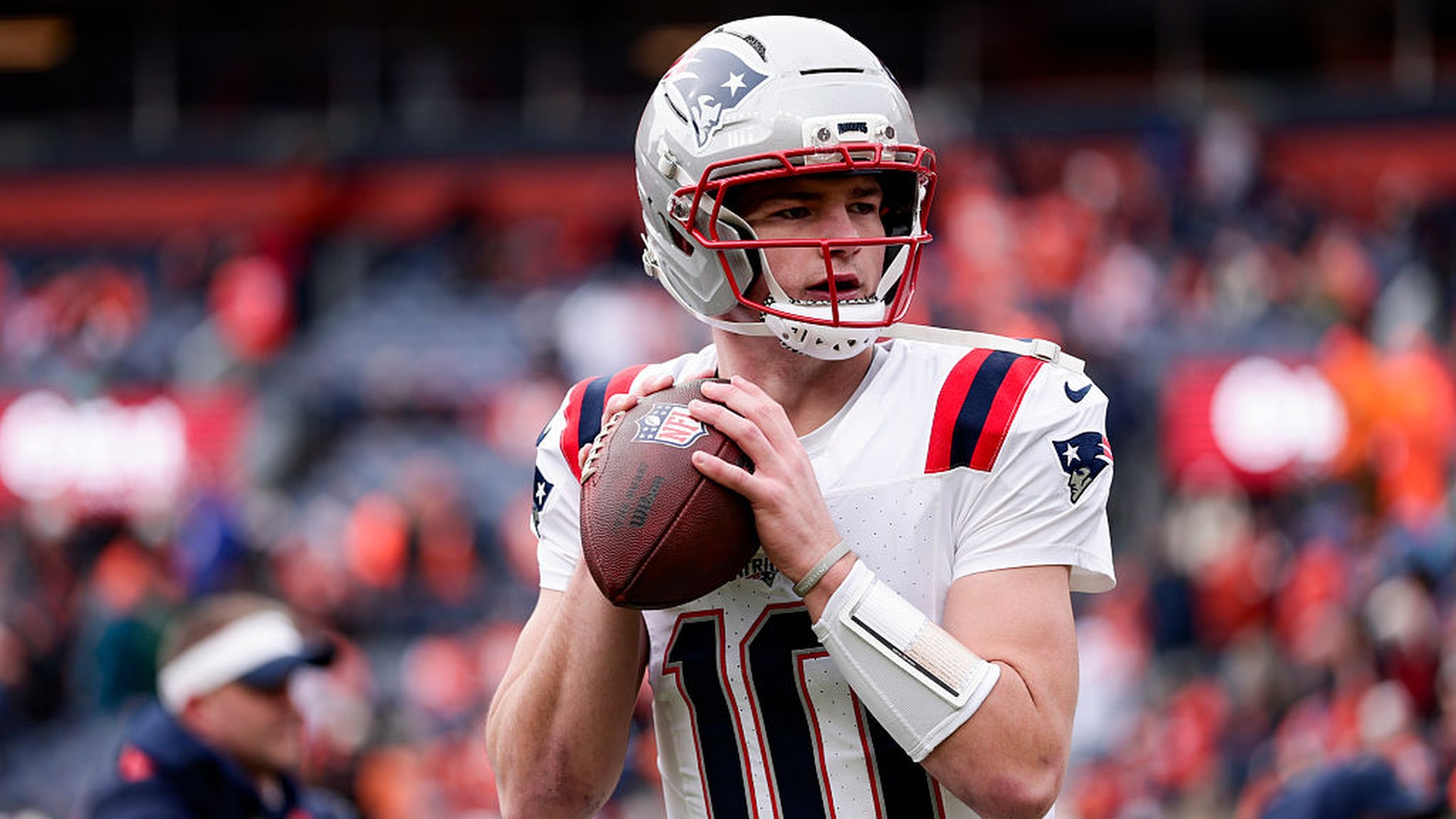Why hasn’t Amy Adams won an Oscar yet?
But seriously.

The latest updates, reviews and unmissable series to watch and more!
You are now subscribed
Your newsletter sign-up was successful
Want to add more newsletters?

ONCE A WEEK
What to Watch
Get all the latest TV news and movie reviews, streaming recommendations and exclusive interviews sent directly to your inbox each week in a newsletter put together by our experts just for you.

ONCE A WEEK
What to Watch Soapbox
Sign up to our new soap newsletter to get all the latest news, spoilers and gossip from the biggest US soaps sent straight to your inbox… so you never miss a moment of the drama!
As we slide into a very unusual awards season for Hollywood, one hindered by closed theaters, social distancing, and a variety of rushed rule changes courtesy of the Academy, a handful of movies have managed to garner a hefty amount of buzz for potential Oscar gold. This year, all eyes are on Netflix, the undisputed giants of the streaming market who have managed to elbow their way to the big boys’ table despite endless skepticism. Netflix has a lot of big movies available for the Academy’s consideration, from David Fincher’s historical drama Mank to Priyanka Chopra’s crime drama The White Tiger to Aaron Sorkin’s political polemic The Trial of the Chicago 7. One such movie garnering a lot of attention, positive or otherwise, is Hillbilly Elegy, Ron Howard’s adaptation of the divisive memoir by J.D. Vance. The drama comes with a lot of baggage, and the reviews have been decidedly mixed, at best. The lion’s share of praise has fallen upon the lead performers, Glenn Close and Amy Adams, two beloved actresses united by the fact that they have both been frequently overlooked by the Academy despite multiple nominations. It feels like every time a movie starring Close or Adams is announced that has a vague sheen of prestige surrounding it, people start to speculate that maybe this time they’ll finally snag the statue. For Amy Adams, in particular, it’s a cycle that feels both eager and a little bit sad.
Adams’s status as one of her generation’s finest actors has never been in doubt. The past two decades of Hollywood prominently feature her presence across the entire spectrum of genres, budgets, and audience demographics. She’s done comedies, dramas, musicals, biopics, and superhero epics. Directors as beloved as Clint Eastwood, Spike Jonze, Paul Thomas Anderson, and Denis Villeneuve have praised her work to the high heavens. Remember, this is the woman who did The Master and The Muppets in the space of one year. She's a Disney Princess AND Dick Cheney's wife. That’s range!
To date, Adams has received a grand total of six Oscar nominations - five for Best Supporting Actress and one for Lead - but zero wins. That ties her with legends like Deborah Kerr and Thelma Ritter in terms of actresses with the most nominations and no victories (a record beaten only by Glenn Close.) The work is there, the Academy clearly likes her enough to recognize her talent in the first place, and the industry endlessly raves about her skills. So, why no Oscar?
While Adams may have been recognizable to audiences before her first Oscar nomination, thanks to movies like Drop Dead Gorgeous and Catch Me If You Can, it wasn't until 2005's indie hit Junebug that she broke out in a major way. The movie received strong reviews, including rapturous praise from Roger Ebert, and everyone agreed that Adams's performance was a real highlight. As Ashley, the small-time girl hoping a baby will help fix her marriage to her high school sweetheart, she is a ray of sunshine whose vulnerabilities are only barely concealed by her comforting warmth. It's the kind of performance that turned a good movie into a must-see one and made Amy Adams more than just a bit-part supporting actress.
Adams received her first Oscar nomination for Junebug, but as the newest face in a category that included competition from bigger movies like Brokeback Mountain and Capote, she was never going to win (the Oscar went to Rachel Weisz for The Constant Gardener.) More high-profile work followed, however, and Adams found herself in a slew of roles that benefited from her naturally guileless allure. If she'd been born a decade prior, she would have been a top contender for Julia Roberts's America's Sweetheart crown. Junebug-esque roles followed, including one as a literal Disney princess in Enchanted, which remains one of her best performances. Even in Doubt, the bleak drama about accusations of child abuse in the clergy, for which she received her second Oscar nomination, cast her as the sunshine-y nun who seemed most inspired by Julie Andrews in The Sound of Music. That year, she lost to Penelope Cruz's fiery romantic in Vicky Cristina Barcelona.
Adams got to stretch her muscles in more flinty roles, most notably the boxing drama The Fighter, playing a character that director David O. Russell described as "a sexy bitch", and in The Master, where she held her own against powerhouses Joaquin Phoenix and Philip Seymour Hoffman as the latter’s mercurial wife. Nominations followed for both movies, and the latter remains, in my humble opinion, her true on-screen triumph. If ever she had a true chance to win an Oscar, it was with these roles in high-profile projects where she played against her cutesy type and stole the show from under the noses of the showboating men. But with The Fighter, she lost to co-star Melissa Leo, whose part was flashier and whose notorious Oscar campaign made her impossible to ignore that season, and with The Master, she stood no chance against Anne Hathaway in Les Misérables, a performance that had been deemed the Oscar front-runner from the moment it was announced. Greater acclaim sadly seldom outweighs an aggressive willingness to play the Academy’s game.
It seems that, post-The Master, Adams's reputation as an oft-snubbed actress began to form. Fans and awards predicators paid more attention to her upcoming roles, speculating if this would be the one to land her that coveted Oscar. Would it be Her, Spike Jonze's futuristic romance? How about Tim Burton's biographical drama Big Eyes? Or Tom Ford's style-over-substance thriller Nocturnal Animals? She received zero nominations for these roles and was also snubbed for the part thar may considered the peak of her career.
The latest updates, reviews and unmissable series to watch and more!
Denis Villeneuve’s sci-fi drama Arrival may be Adams's greatest leading performance, a true emotional tour de force of confusion, empathy, and drive to do the right thing amid intense turmoil. It's a deceptively quiet performance that requires a tricky emotional balance, and Adams knocked it out of the park with seeming ease. As Louise, the linguist caught up in Earth's attempts to communicate with a group of unintelligible aliens making first contact, she grounds a human presence amid the dizzyingly speculative. Yet the Academy ignored it, mostly in favor of showier performances like Emma Stone in La La Land (she sings and dances!) and Meryl Streep in Florence Foster Jenkins (she’s Meryl Streep!) It felt almost too right that Adams’s work was too subtle, too gentle, too “easy-looking” to voters to recognize. That’s Amy Adams’s talent in a nutshell. Adams’s most recent nomination was for Adam McKay’s Vice, where she played the token wife role as Lynne Cheney, a part that gave her little to do beyond wear prosthetics and encourage Christian Bale.
Playing the Oscars game is a ridiculous treadmill of demands, expectations, and near-smothering restrictions. Putting in a great performance isn’t enough. Indeed, some of the greatest pieces of acting committed to film didn’t stand a chance with the Academy thanks to their middlebrow mainstream tastes and obvious preference for industry folks who put in the time to campaign aggressively for the top prize. It’s no wonder so many actors have spoken out against it. Many actors win less for the performance than for their years of previous work, outstanding goodwill, or the fact that people just like them a lot and feel it’s their time. A personal narrative carries as much, perhaps more, weight than the professional output. That’s why we have decades of overlooked stars, true unchallenged icons of Hollywood who never got their moment on stage. It wasn’t personal, and Oscar experts will argue for decades afterwards about whether the snub was justified, but sometimes, the right people simply don’t win. Deborah Kerr never won. Neither did Judy Garland or Peter O’Toole. Myrna Loy wasn’t even nominated, and, while there’s still time, neither have Steve Buscemi or John Goodman.
Amy Adams could still win an Oscar one day. It’s not like she has a time limit on doing so. It still sucks, however, to see someone so exceptionally talented do all the right things, to pitch the “right” projects and campaign accordingly and be ever-so-lovely while doing it and still not get what she deserves. For Adams fans, it’s getting kind of tiring to watch her sit so graciously in the Kodak Theater year after year with the restrained smile on her face that screams “Well, it’s an honor just to be nominated.” Then again, Adams, like many of the best in the business, is too good for such arbitrary deciders of merit. Whether or not she ever wins an Oscar, her place in Hollywood history is secured.
But seriously, someone give her the dang award already.
Kayleigh is a pop culture writer and critic based in Dundee, Scotland. Her work can be found on Pajiba, IGN, Uproxx, RogerEbert.com, SlashFilm, and WhatToWatch, among other places. She's also the creator of the newsletter The Gossip Reading Club.


